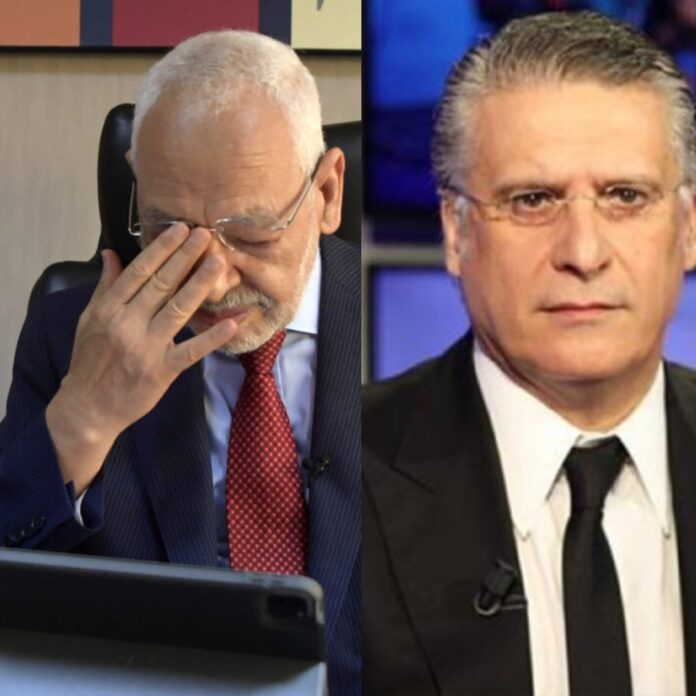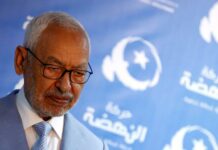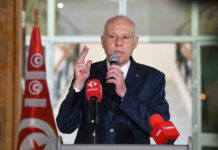President Kais Saied’s statements calling on the judiciary to take its course in corruption cases related to the legislative elections would not have been so clear without the Court of Accounts report, which contained accurate data implicating winning electoral lists in the frozen parliament and the parties behind it. The report had previously indicated that there are suspicions surrounding these lists and parties, especially the Ennahda and Qalb Tounes parties.
This is because the judiciary, which was previously under the influence of various political pressures, is now in a better position, which enables it to go in its rulings to the most severe penalties, starting with the annulment of electoral victory lists and ending with the dissolution of parties that received foreign money, as indicated in the Parties Law.
However, what is important today is not announcing the fall of this or that list. It is no longer of value. Parliament is frozen and its return to activity is out of the question, and the next step may be to dissolve it before announcing early elections. What is required is more severe penalties, such as dissolving the parties involved in corruption and prosecuting their leaders in order to send strong future messages to the political class.
The issuance of strict rulings regarding the corruption that took place in the previous elections provides a legal and political ground for dissolving the parliament and pushing the faces involved in corruption to leave the political scene with court rulings.
Lawyer Imad Ben Halima, who is known for his opposition to the Islamists, wrote in a post on his Facebook account that the situation is moving towards dissolving the Qalb Tounes party and the Ennahda movement in light of the evidence of foreign funding.
As announced by the judge in the Court of Accounts, Fadhila Gargouri, the Judicial Chambers of the Court of Accounts launched their preliminary rulings in election-related cases. President Saied called on the judiciary to assume its responsibility in holding those involved in corruption cases accountable, especially the financial abuses during the previous elections that took place in 2019. This was during his meeting with Najib Guetari, the head of the Court of Accounts, who presented him with a report on the oversight of the administrative and financial behavior of the Independent High Authority for Elections. Kais Saied also urged the judiciary to assume its full responsibilities in this historical moment that Tunisia is going through and to hold those involved in corruption cases accountable so that the people regain their rights and the state gets rid of the impurities that have stuck with it in the past years.
The Court of Accounts report issued in November last year indicated that the Islamic Ennahda movement had contracted with an American lobbying company since 2014 to polish its image, and the same applies to the Heart of Tunisia party (Qalb Tounes). But the report remained without judicial follow-up.
Although the court carried out its duty to scrutinize the finances of the parties during the last legislative elections, the reports remained without effect. Kais Saied said: “The abuses committed during the legislative and presidential elections (2019) are of all kinds.”
Although the court carried out its duty to scrutinize the finances of the parties during the last legislative elections, the reports remained without effect. Kais Saied said: “The abuses committed during the legislative and presidential elections (2019) are of all kinds.” He stressed, “The judicial and penal judiciary must arrange the legal implications of where the money for the parties came from.” And he added, “there are provisions of up to 5 years for foreign funds,” explaining that “the legislative elections were financed with money that came from abroad.”
The Court of Accounts, which is the highest judicial supervisory body in Tunisia, revealed in a report that the Islamic Ennahda Movement had contracted with an American advertising and lobbying company in order to polish the movement’s image.
During a press conference last November, Fadhila Gargouri said that Ennahda had entered into a contract with the advertising and lobbying company Burson Cohn & Wolfe to carry out propaganda and lobbying campaigns to gain support in the elections since 2014. The court explained that the value of contract concluded by the Islamist movement amounted to a quarter of a million dollars, stressing that the sources of this money are still unknown.
The Accounting Department also accused the Heart of Tunisia party (Qalb Tounes), headed by businessman Nabil Karoui, of contracting with a foreign pressure company worth 2.85 million dinars, and part of the contract value was transferred through an unauthorized bank account, which is his wife’s account.
Ahmed Kahlaoui, head of the Tunisian Organization Against Normalization, said in a statement to the official Tunis Africa News Agency that the Court of Accounts is required to reveal the abuses committed by the Ennahda party, Qalb Tounes and the Eich tounsi (Live a Tunisian) list and issue the necessary judgments in this regard.











